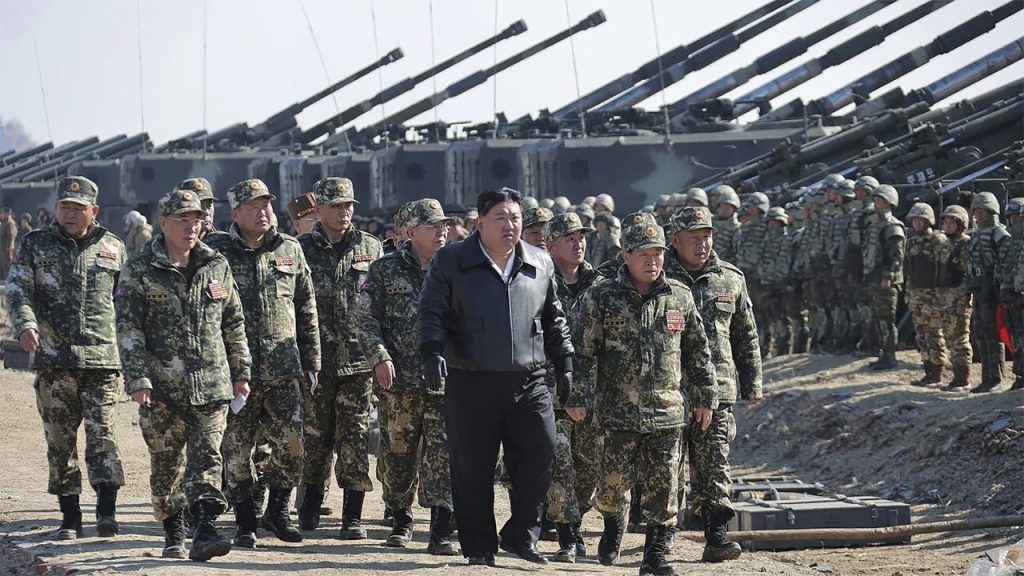North Korea recently announced that its army units are prepared to launch strikes against South Korea after accusing its neighbor of sending drones into North Korea and dropping propaganda leaflets over Pyongyang. South Korea has neither confirmed nor denied the allegations but has warned that it will retaliate if its citizens are threatened. North Korea’s Defense Ministry stated that its military has issued a preliminary operation order to artillery and other units near the border to be prepared to open fire in response to any future drone incursions.
In response to the alleged provocations, a spokesperson for North Korea’s Defense Ministry stated that the military is fully prepared to launch immediate strikes on unspecified enemy targets if South Korea continues to send drones across the border. The spokesperson highlighted the “grave tough-and-go military tensions” currently prevailing on the Korean Peninsula due to South Korea’s drone flights. This rhetoric is consistent with North Korea’s history of issuing fiery threats when tensions with South Korea and the U.S. escalate. Despite the aggressive language, experts believe that a full-scale attack by North Korea is unlikely given the superior military capabilities of South Korea and its U.S. ally.
Tensions between North and South Korea have been heightened since a U.S.-led diplomacy effort to denuclearize North Korea collapsed in 2019. Following this breakdown, North Korea has been focused on expanding its nuclear arsenal and has repeatedly threatened to attack both South Korea and the U.S. with nuclear weapons. Last week, North Korea announced its intention to permanently block the border with South Korea and construct front-line defense structures in response to perceived confrontational actions by South Korean and U.S. forces. This move comes as part of a series of tit-for-tat actions between the two Koreas, including the launching of balloons filled with trash across the border by North Korea.
Last month, North Korea launched over 160 balloons filled with paper, plastic bottles, and household garbage across the southern border into parts of Gyeonggi Province, surrounding Seoul. South Korea’s Joint Chiefs of Staff reported detecting approximately 420 balloons launched by North Korea into its territory earlier in September. In retaliation, South Korea has employed front-line loudspeakers to blast propaganda messages and K-pop songs towards North Korea. The trash balloon launches are seen as a response to South Korean civilian activists who fly anti-North Korean propaganda leaflets across the border. Despite occasional incidents such as trash landing on the South Korean presidential compound, no injuries have been reported.
Overall, the recent escalations in tensions between North and South Korea, fueled by accusations of drone incursions and provocative actions, highlight the ongoing volatile situation on the Korean Peninsula. While North Korea’s threats and inflammatory rhetoric are part of a pattern of behavior in response to perceived provocations, the likelihood of a full-blown military conflict remains low. Both sides continue to engage in symbolic gestures and tit-for-tat actions, reflecting the deep-rooted animosity and distrust that characterize the relationship between the two Koreas. As the situation continues to unfold, efforts to de-escalate tensions and promote dialogue remain crucial in ensuring peace and stability in the region.















